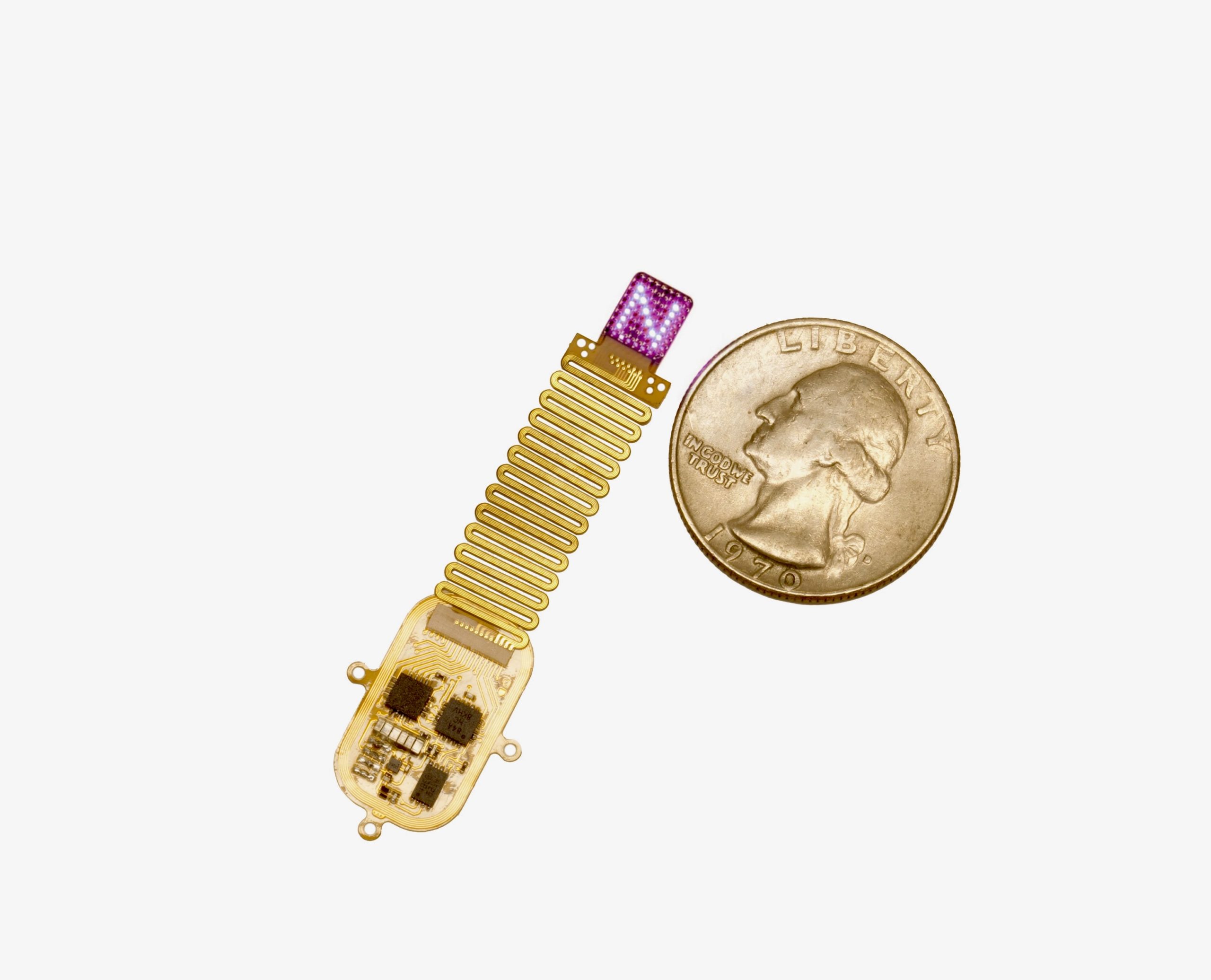Tag: Neurosurgery
-

Study Identifies Enzyme that Helps Tumors Evade the Immune System
Northwestern Medicine scientists have identified an enzyme which aids tumors in evading the immune system, findings that could provide future directions for tumor treatment, according to a study published in Nature Communications.
-

First Transient Electronic Bandage Speeds Healing by 30 Percent
Northwestern University scientists have developed a first-of-its-kind small, flexible, stretchable bandage that accelerates healing by delivering electrotherapy directly to the wound site.
-

First Wearable Device for Vocal Fatigue Senses When Your Voice Needs a Break
Scientists have developed the first wearable device to track how much people use their voices, alerting them to overuse before fatigue and potential injury set in.
-

Wireless Brain Implant Monitors Neurotransmitters in Real Time
Scientists have developed a wireless, battery-free implant capable of monitoring dopamine signals in the brain in real-time, an advance that could aid in understanding the role neurochemicals play in neurological disorders.
-

Novel Deep Learning Method May Help Predict Cognitive Function
Northwestern investigators have developed a deep learning-based method that can predict cognitive function capacity based on brain shape and structure, detailed in a study published in Scientific Reports.
-

Recurring Brain Tumor Growth is Halted with New Drug
A new study has identified a drug that inhibits growth of aggressive meningiomas and how to most accurately identify which tumors will respond to the drug.
-

T-Cell Interactions Vary Between Tumor Microenvironments
A team led by Northwestern Medicine investigators has discovered differences in the distribution and interaction of T-cells within different parts of brain tumor and brain metastasis microenvironments.
-

Identifying Cancer Biomarkers for Immunotherapy Response
Scientists have discovered a potential biomarker that could more accurately identify which patients with non-hypermutated cancers will respond to specialized immunotherapy drugs.
-

Northwestern Physician-Scientist Named to National Cancer Advisory Board
Northwestern Medicine physician-scientist Amy Heimberger, MD, has been named by President Biden to the National Cancer Advisory Board, which plays an important role in setting the course for the nation’s cancer research programs.
-

Uncovering Epigenetic Mechanisms Regulating Glioma Growth
Northwestern Medicine investigators have discovered the epigenetic mechanisms involved in the regulation of two oncogenes in glioma cells, which may improve personalized approaches to treat these cancers.






